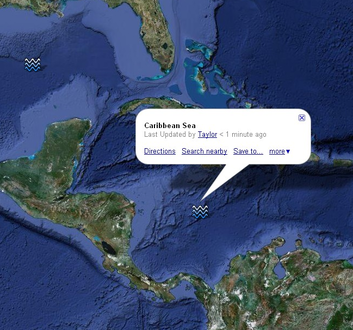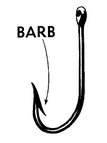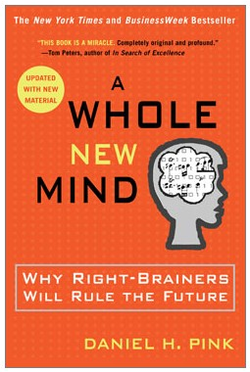 Memorizing locations on maps can be hard and time consuming, but I might have a solution that will make maps meaningful and fun for you. Keep in mind, this is really just a preview and a test for what we might do later on this year, and right now only those of you who happen to have a google account can collaborate on this, but I thought sharing it would still be better than not sharing it. Here's the deal: I've begun building "Map Mastery 2" in Google Maps and I've opened it up for collaboration. If you would like to contribute to this group map, feel free. If you would rather not contribute, but just look from a distance that's fine too. To collaborate: - sign in to your google account
- go to my Map Mastery 2 Map
- click "Save to My Maps" in the upper left hand corner(ish)
- click "Edit" in the upper left hand corner(ish)
- click on the blue marker in the upper left hand corner of the map
- start adding locations from Map Mastery 2 in your map book
Keep in mind, this is not your map. It's our map. If you purposefully mess this map up, it messes up everyone's. If you write down the wrong locations, then everyone see's the wrong locations. Feel free to make corrections if people add the wrong locations or to clean up the look of the map if others have added information sloppily. Of, if you'd rather not deal with the rest of the class, you could just start your own. I hope this is helpful. Let me know how it works and feel free to comment on this post with suggestions for improvement. Most of all, have fun learning geography!
Starting today we will be preparing for our first two tests of the year. Next week, we will have a History test on Tuesday and a Spelling test on Wednesday.
Here are some tips:
Repeat important info over and over. Start studying NOW. Your brain is wired to remember things that are repeated over and over so studying a little bit each night works a lot better than cramming a whole bunch the night before.
Use many senses. Your brain remembers rich experiences better than "simple" experiences. In other words, if you can see your facts, say your facts, feel your facts, and smell your facts you will be more likely to remember them. How do you feel your facts? Well, I'm not sure exactly but you might try some of these strategies:
- Outline your spelling words to feel the shape of them.
- Try typing info as well as writing it down so your body gets more physical input associated with the facts.
- Try putting info on cards and physically sorting it into different categories.
Exercise. Your brain works way better when you get the blood flowing. When you are frustrated with studying maybe the best thing you could do is take a jump rope break.
Focus. We all like to pretend like we can multi-task, but the truth is our brains can only give attention to one thing at a time. When you switch constantly from your history book, to chatting online, to watching TV, your brain has to reset itself every time and you just can't remember as well.
If you are at all interested in Praise Band this year, please fill out the following survey to let Mr. Swedberg know. You are not guaranteed a spot, but we'll do everything we can to get as many kids involved as possible. Click here to fill out your initial application.
 Hooking your reader from the beginning of a short story is really important. Here is a summary of some of the ways we discussed in class that you might hook your reader:
- action
- something unusual
- something unexpected
- something that makes us ask a question (a knowledge gap)
- conflict
Remember, your homework for tonight is to write down the hook from a story of your choice. It might be a book you have or a movie you've watched. Come to class tomorrow with a written example of a hook, and see if you can say why it is an effective hook.
 I learned last night in Dan Pink's, A Whole New Mind that Richard Bransen and Charles Schwab both cite their dyslexia as the secret to their success. In fact, self-made millionaires are 4 times more likely than everyone else to be dyslexic. Why? According to Pink, "Dyslexics struggle with... linear, sequential, alphabetic reasoning at it's core. But as with a blind person who develops a more acute sense of hearing, a dyslexic's difficulties in one area lead him to acquire outsized ability in others."He continues, "Dyslexics think differently. They are intuitive and excel at problem-solving, seeing the big picture, and simplifying..."This got me thinking about how God made everyone uniquely. Everyone's brain is wired a little bit differently and we all have things that are just harder for us. My question is, how might our weaknesses be steering us toward our strengths? How might you tackle a project differently (and perhaps better) than those around you because the traditional way doesn't make sense to you?
Dear 6th Grade Parents,
Thank you all for helping this year get off to such a great start. It’s been great to meet so many new parents and I can’t express enough how well behaved and fun to teach this new batch of 6th graders is.
I can’t wait to get started with all the projects and ideas I have for your children this year. Your kids will be writing weekly blog posts on positive and impactful topics, collaborating on writing and research projects, thinking creatively about how to communicate their ideas, working together to study for tests, writing short stories and persuasive writing pieces, designing websites, and as you already know, your kids will be blogging responses to books they have read.
However, before we can do any of these important things, I need to ask you for something that it’s going to be hard for some of you to agree to, and that is I would like your child to have their own email address.
Right now about half of the students in the class have their own email and most of the other students said they just use their parents’ email. Either way is honestly fine with me and I would expect that parents would always have passwords to their children’s email account.
However, to be more specific, I would actually like your child to sign up for an account with Google. A Google account comes with access to a blogging platform, a way to share documents from the computer lab to home easily, a way to collaborate easily with classmates, and of course the email address that we actually won’t be using that much at except for signing in to applications for learning like Blogger.
I know the web can be a scary place to let your kids access, but I think with a partnership of monitoring from both parents and myself your kids will be safe. Not only that, but the learning opportunities that the web provides are pretty exciting and many of them didn’t exist even a couple years ago.
So basically, what I’m looking for is permission. If it’s okay with you that we take some time in class to sign your child up for an email account, please just email me and let me know. If you have misgivings, that is completely understandable and I’d love the chance to talk to you about it. If you really just aren’t ready for this step yet, I understand and other assignments can be created.
Thank you all so much for raising such amazing kids. I can’t wait to see them get even more excited about learning.
- Mr. Swedberg
Actually, yes. Your child wasn't joking when they told you that you have homework this weekend. Your assignment? In one million words or less, describe your child to me. You can handwrite your work or type it. You can send a paper version with your child or you can email it to me-- whatever is easiest for you.
Good luck! Make sure to ask your child about the writing process and the six traits of writing. They'll love to make YOU revise this time. :)
It's tonight at 7 at the school.
Parents, did I get your attention with that? I hope so, because I was hoping you might take some time to read a really important study done by a researcher named Carol Dweck. I highly encourage you to read the entire article linked to here (focusing especially at the section toward the bottom of page 3), but the gist of it says the following: When kids were told, " You must be smart at this," they responded by: - believing they couldn't grow - their identity is "fixed" - wanting easy tasks where they could continue to prove they really were smart - losing confidence and enjoyment when they struggle on problems - wanting to compare themselves with "lower" students to make themselves feel better - 40% lied about scores they received to make themselves look better - performing 20% worse on future assessments - desiring to appear to perform well When kids were told, " You must have worked really hard at this," they responded by: - believing they could grow and improve at tasks - wanting harder tasks where they could challenge themselves and get even better - actually enjoying hard problems because they know they will grow from the experience - wanting to compare themselves with "higher" students so they can see how to improve - only 10% lied about scores they received - performing 40% better on future assessments - desiring to learnI actually first came across this study in a book called How We Decide, by Jonah Lehrer. It's a fascinating book on how the emotional and logical parts of our brains battle it out to get their way.
Today in class, we will be discussing the story arc. You will get a handout that you can refer to for the rest of the year in class today, but if you misplace it you can always download a new copy right here. You can also find one on the Helpful Tools page under the "Organizers and Helpers" heading.
 | story_elements_-_story_arc_-_overhead.doc | | File Size: | 43 kb | | File Type: | doc |
Download File
|



 RSS Feed
RSS Feed